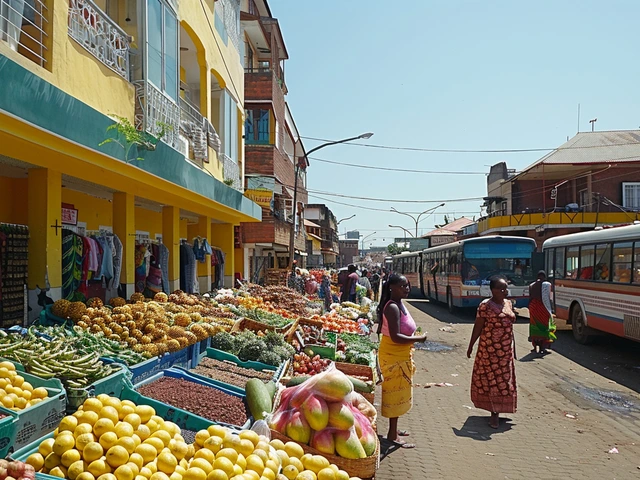The Real Story Behind Ethiopia’s Housing Market
Curious about what it really costs to find a place in Ethiopia? Whether you're looking to settle in Addis Ababa or thinking of investing, the housing market here packs a few surprises. Home styles stretch from traditional tukuls out in rural towns to city apartments and modern condos in urban centers.
Prices and options can swing widely depending on where you look. If you’re new to Ethiopia’s cities, prepare for tight markets and rising rent. In Addis Ababa, the capital, demand drives up prices—especially in sought-after neighborhoods. Locals often face a squeeze, with some spending more than half their income just on rent. On the other hand, if you check smaller towns or rural spots, you might find space is cheaper, but amenities take a hit: think less internet, fewer stores, maybe even patchy water supply.
Trying to buy? It’s a whole different game. Foreigners usually can’t own land in Ethiopia straight out—land belongs to the government, and “owning” a home means you lease the land from the state. These leases typically run for decades. Construction costs are no joke, with prices rising for both materials and labor. If you see a skyline of new developments, remember most aim for middle- or high-income buyers, leaving affordable housing in short supply.
Real estate investment? Some expats and locals see opportunity, especially as government pushes for more urban development. But there’s always a catch: be aware of legal differences, paperwork hurdles, and the need for trustworthy local help. Scams and property disputes aren’t unheard of.
Worried about quality of life? It ties directly to what you can afford. Areas close to business districts or universities usually cost more but offer better transport, shops, and security. Newcomers often look for shared housing before signing a long-term lease—locals do this too. Many students and young workers pool resources to snag a spot in safe and central locations.
Planning to move? The best first step is asking locals or coworkers about trusted agents and honest prices. Take a stroll through areas you’re interested in; sometimes you’ll spot rental flyers posted right on gates or windows. If you’re lucky, you’ll hear about places from word of mouth—still the best way to snag a good deal at local rates.
Thinking longer term? The market’s moving, and housing shortages mean price bumps year after year. If you’re working in construction or real estate, there’s real demand for affordable options—and plenty of open questions about how those homes will get built.
If you want to know what your budget can really get you, focus on location, amenities, and who owns the land underneath your feet. It’s not just about finding a roof—it’s about understanding how the Ethiopian housing market works, who’s got the keys, and what makes a home here truly affordable.






